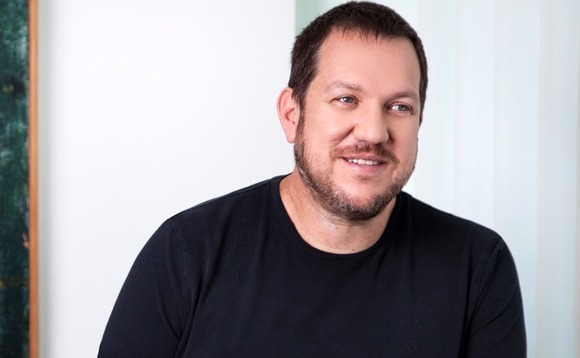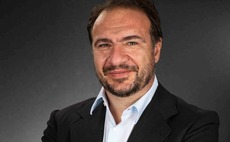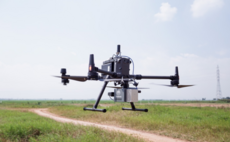
Q&A: Viola Ventures' Ronen Nir

Ronen Nir is a general partner at Viola Ventures, an early-stage technology investor under Israel’s Viola Group looking to expand its presence in Asia
Q: Can you offer some background on Viola Group?
A: Viola is the largest technology-focused investment group in Israel. We have a total of about $3 billion in assets under management. The structure is four loosely coupled funds: Viola Ventures, Viola Growth, Viola Fintech, and Viola Credit. Each one is independent with its own LPs, investment professionals, and decision-making process. We have a joint back office that serves all the funds with marketing, research and analysis, and finance teams. For LPs that can only write very large checks, we can build vehicles that enable them to invest in several funds. Those relationships are quarterbacked by our joint IR team.
Q: What about Viola Ventures?
A: Viola Ventures was the first fund formed in the group in 2000, and today we have assets under management of about $1 billion across five funds. Each one is roughly $200 million, and we have been very persistent in keeping all our funds that size. We believe that a smaller fund would make it difficult to do follow-on investments, while a much larger fund would make it harder to get the returns we're aiming for. We're currently investing out of Fund V, which is $225 million, with an investment period of 3-4 years. We will do 20-22 investments. About 50% of the capital will be reserved for follow-on investments.
Q: What has motivated your Asia strategy?
A: Israel has very good technology and innovation, but it's a small country and doesn't have a large local market. So Israeli companies and start-ups are always thinking global from day one. To be honest, 7-8 years ago, when we said "global" we meant the US. Most of us have done business in the US, some of us have lived in the US, and we speak relatively good English, so it's easier. But we saw that more of our portfolio companies were doing business in Asia. We thought that we must get our own understanding of what those markets look like, not just through the lens of our portfolio companies.
Q: How did you enter the region?
A: The first trips were in 2012 and 2013 and the first LPs we had were in Fund IV, which we raised in 2013. We didn't know what to expect. Do people even know where Israel is? Do they even know that there's a technology community over there? But in the case of Korea, China, and definitely Singapore, it was the right timing. Israel was on their list, and it actually wasn't too long before they were ready to make significant commitments. We basically made a decision that roughly 20% of the fund would come from Asia.
Q: What are the main areas of cooperation?
A: We have done about 20 co-investments with Asian players in the past 5-6 years. We also do a lot of business development activity and facilitate introductions for our LPs. By being on the ground in Asia and flying here quite a lot, we gain more experience on how to help portfolio companies do business here.
Q: Are there long-term plans to invest Asian start-ups?
A: No. Our LPs want exposure to Israeli technology. We are mandated to invest only in Israeli or Israel-related technologies. The first touch points with Asia are the corporates, which are sending delegations over to Israel, getting Israeli companies to visit them, and having local people on the ground. More and more large Asian corporations are coming to Tel Aviv to do development activities. So the first phase of us in Asia was building relationships with those corporates and understanding the market. The second phase is trying to extend our LP relations into more financial institutions.
Q: What's your Asia exposure at the portfolio level?
A: Enterprise software is still mostly in the US and Europe, but we will target a lot of our efforts toward Asia with the new kinds of things we'll invest in the next few years. That includes robotics, internet-of-things, automotive, and artificial intelligence (AI), and in certain areas, we are coming back to semiconductors, which Israel has done in the past in Asia. We're seeing robotics and semiconductors in Japan. In China, we have companies in digital media, consumer applications, gaming, and advertising. In fintech, it's anything to do with cross-border payments. The world is becoming a global platform, and Asia plays a major part in that.
Q: There is a relatively strong focus on industrial and enterprise versus consumer…
A: As we move to the next decade, we are going to go into verticals like manufacturing and robotics, and we are seeing more openness in Asia to adopt Israeli technology. It could also be that consumer behavior attracts us, but actually the go-to-market is pure B2B. Japan is maybe the best example. We recently invested a company called Syte that does visual AI for fashion retailers – take a picture of your jacket and we analyze it to find you the closest looking jacket. Japanese Y and Z generations are buying clothes that way, and behavioral adoption is much faster than in the West.
Q: Viola Credit recently partnered with Australia's OneVentures on a venture debt fund. What is the scope for other Viola tie-ups across Asia?
A: Israel has had a [technology investment] industry for almost 35 years, so the level of complexity and sophistication that we've reached is second only to Silicon Valley. You have all types of players, big and small funds, equity and debt funds, VC, growth, buyout, and private equity. Many countries that are just starting to jumpstart their own ecosystem are coming to Israel to learn how these are built. In certain cases, if there's a business opportunity, we in Viola can extend this relationship by also doing business in other geographies, tapping opportunistically places where we can provide experience.
Latest News
Asian GPs slow implementation of ESG policies - survey
Asia-based private equity firms are assigning more dedicated resources to environment, social, and governance (ESG) programmes, but policy changes have slowed in the past 12 months, in part due to concerns raised internally and by LPs, according to a...
Singapore fintech start-up LXA gets $10m seed round
New Enterprise Associates (NEA) has led a USD 10m seed round for Singapore’s LXA, a financial technology start-up launched by a former Asia senior executive at The Blackstone Group.
India's InCred announces $60m round, claims unicorn status
Indian non-bank lender InCred Financial Services said it has received INR 5bn (USD 60m) at a valuation of at least USD 1bn from unnamed investors including “a global private equity fund.”
Insight leads $50m round for Australia's Roller
Insight Partners has led a USD 50m round for Australia’s Roller, a venue management software provider specializing in family fun parks.







